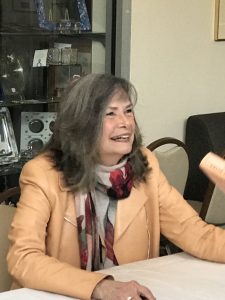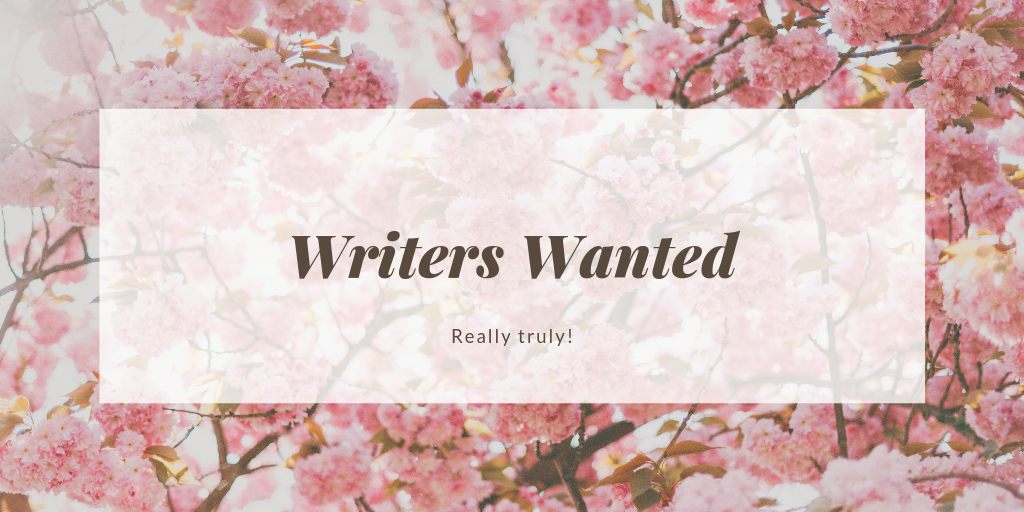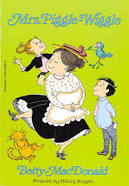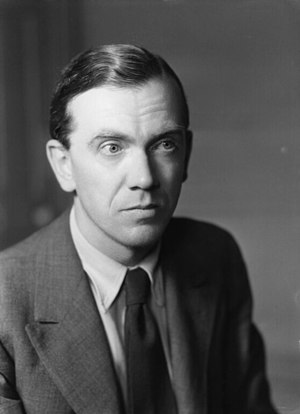SHEDDING LIGHT ON WHERE THE CRAWDADS SING

What exactly is Delia Owens saying in her best-selling novel Where the Crawdads Sing? Perplexing events and characters in the story have caused readers to ask a lot of questions and have a lot of interpretations. Last November, I was fortunate to hear Owens speak in person about the novel, offering a few answers to all those questions.
Inspiration
for the story, she explained, started when she was a child in the state of
Georgia and her mother would send her out to explore the woods. As an adult,
while she was exploring the much larger wilds of Africa, she realized how
similar human behavior is to animal behavior. “We are both territorial,” she
said. “Also, females will abandon their young in times of severe stress.”
CALLING ALL AUTHORS

Have you written a book lately (or not so lately)? We’re still looking for authors to be interviewed on Late Last Night Books!
Looking for authors with stories to share
Once again, I am looking for authors who want help publicizing their new books or writing projects–or, as before, even a not-so-newly published book–in future blog posts. In my experience, getting your name and work “out there” is the most painful part of being a writer. I’m hoping this blog can help make that process a little less painful for others–especially writers (and that’s most of us) who don’t have well-funded publicity machines working on our behalf.
In the past this offer has brought forth many talented writers, including Bill Woods, Nancy Burke, Lila Iona McKenzie, Anna Marsh, and Michael J.
The Rise of the Podcast
The podcast has become the author’s best friend as far as learning about marketing a book is concerned. In terms of keeping up with trends in the industry, this medium brings the author and anyone else that sells books up to speed.
Podcasts usually record a conversation, or question and answer session, with a host and one or two other experts. The consumer listens to them for free online. The conversation is easier to follow and more entertaining than, say, a lecture provided by one person. Everyone can recall fighting off sleep while trying to concentrate on a lecturer for forty-five minutes to an hour. Or how about those three-page articles in magazines that can be tiresome to follow? With their back and forth banter, podcasts are livelier and generally have a good sense of humor, making them the better method to learn the fast-changing world of book marketing.
The Unspoken Prejudice Against Male Authors
A headline in today’s Guardian gushes: ‘Rathbone Folio Prize: Zadie Smith makes female-dominated shortlist.’ Now I like Zadie, and although I haven’t read her first story collection, Grand Union, I doubt that it’s unworthy. Still, I must admit (dare I?) that on reading “female-dominated shortlist” I did think, ‘Another one?’ And in case you wonder, as I did myself for a moment, if it were merely my impression that women writers have been dominating the prize shortlists lately, I did some research. These are the facts about a few major recent prizes:
Rathbone Folio Prize, 2020: 6/8 shortlisted writers are women
Booker Prize, 2019: 5/6 finalists were women
National Book Award Finalists, 2019: 4/5 finalists were women
National Book Critics Circle First Book Award, 2019: 6/7 finalists were women
Orange Prize for Fiction, 2019: 6/6 finalists were
women.
So You Want to Write a Memoir!
Writing a memoir can be a most rewarding experience––one your
family and friends will thank you for having done. A memoir is your opportunity
to leave concrete documentation of your life in a form that is easily
accessible to present and future generations.
Every family has stories. That’s human nature. But all too often people have
questions about the past they wish they had answers to when someone important
to them is gone. You may have felt that way upon the passing of a parent,
sibling or other significant person in your life. Don’t make your offspring
wish they knew more about your family background or how you met your spouse or
why you moved to a certain city.
Here are some reasons you might want to write your memoir:
- To share your life’s story with your offspring, other relatives and friends.
Bursting through barriers to story

I’ve been so busy taking care of marketing demands for my three novels (Fling!, Curva Peligrosa, and Freefall: A Divine Comedy), and finishing up the creative writing workshop I’m teaching at the Fromm Institute of Lifelong Learning, that I haven’t had time to write new material, fiction or otherwise. Prose, especially non-fiction, is easy for me to produce. I can spin out words and sentences that end up making sense, as I’m doing here.
But writing fiction? It’s like digging a ditch or chipping away at the concrete of my brain to find a way back into a story. That’s why I usually have several projects in motion. I move back and forth between them. When I run into a dead end with one, I can enter a vein in another, carried along until something stops me again.
READING SPOTS: BEYOND THE ARMCHAIR

Last month I asked readers about the most unusual or challenging places they’ve ever tried reading. They came through with fantastic answers, confirming my hunch that diehard readers will read anywhere and everywhere.
Forget the Armchair
The “weird” reading spots I mentioned ranged from bathrooms to beaches, commuter buses to cliffs. Many people agreed–there are many more places to read in this world than armchairs and libraries. Beds and trains are among the top picks.
My friend Wheatleigh, for example, says his most unusual reading spot was probably the Shinkasen (Japan’s bullet train) while travelling at 200 mph. He did that a lot while living and working in Japan.
“Each station in Japan has a distinctive ‘eki ben‘ or station bento (lunch box),” he recalls.
‘Woke’ Fiction Writing–is it Responsible for the Decline of the Serious Novel?
Are you getting bored by so-called literary fiction these days? Perhaps finding it didactic, lecturing and hectoring—and terribly predictable? One of the results of the ‘liberal consensus’ which almost everyone I know shares, is that there is a great tribe of people who not only have the same views on nearly every issue, but also that this tribe, composed largely of academics and the intelligentsia, expects its writers to trumpet those views, and punishes writers who fail to do so. Writers have always been concerned with social issues like poverty, prejudice against women, certain social classes, and ethnic and other minorities; the difference is that nowadays, instead of investigating them, dispassionately, and allowing the reader to make up his or her mind, many writers are simply preaching: using fictional forms to promote an ideology.
Some Library Gems and “Fool’s Gold” Finds
One of the pleasures of being “retired” is having the time to discover new authors. I also discovered a new cheap way of doing this. My local library in Howard County Maryland has a shelf of books they are purging from their collection that are on sale for $2.00 each. And when you pay $2 for a book, you don’t feel you have to finish it if it’s not your cup of soup.
I’ll start with an author I discovered whose books who I’ll keep reading: Charles Finch. I bought Finch’s “An Old Betrayal,” the seventh in a series featuring Charles Lenox mysteries.
A test of an author’s writing craft is to pick up a book in the middle of the series and not feel lost or that you have to go back and read the others from the first onward.
WHAT’S YOUR WEIRDEST READING SPOT?

The other day a blizzard blasted my husband’s daily walk in the woods. “Why not swim laps with me?,” I asked. (I was heading to the indoor pool across the street). He looked at me like I was insane. Didn’t I know that he cannot exercise without “reading,” i.e., listening to a book? And didn’t I know how hard it was to follow narrative while swimming laps?
I didn’t, though he may be right. I do enjoy audio accompaniment to exercise, but I have never tried stroking through a story. As a devoted and daily swimmer, I listen instead to music on my beloved swiMP3 (when it chooses to work). Some people might be able to synchronize swimming with reading—I’m just not one of them.
What role does music have in good writing?
I was fortunate to have piano lessons when I was a girl. In Canada, if students are learning classical music, teachers usually follow the Royal Conservatory of Music progression from grades one through ten and utilize the books for each level. These lessons include theory as well as musical scores for students to progress in.
Very early, I decided that classical was not my preference, and, after I’d completed four grades of the Royal Conservatory program, I convinced my mother to send me to a teacher who could help me learn pop tunes. That involved learning how to chord so when I used sheet music of popular songs, I only had to read the right-hand score, improvising with my left hand using chordal variations.
THE YOUNG AND THE HEADSTRONG

Last month I asked people to share their favorite headstrong women of literature. I was pleasantly surprised at the number of responses–though many responses were not exactly women, and, in at least one case, perhaps not even human.
Among the top answers were the kinds I was expecting. They included authors like Jane Austen, Louisa May Alcott, and Gertrude Stein who had written about strong, independent female characters and/or were notably strong and independent themselves. Some new names showed up on this list as well, including Jodi Picoult, Nora Ephron, Isabel Allende, Barbara Kingsolver, and even HIldegard of Bingen.
Other responses were female characters who clearly knew their own minds and felt empowered to live accordingly.
Identity Guilt: A Review of Tommy Orange’s “There,There”
I suspect Tommy Orange fears he’s not being judged on the same scale as other authors. He’s like Supreme Court Justice Clarence Thomas. When Thomas got into Yale, people let it be known they thought he only got in because of affirmative action.
I suspect Orange fears he only got a book contract and won awards for his novel is because he’s Native American. I suspect he worries that he’s not being held to the same standard as other authors and having read the book I suspect he’s right.
There, There is an
award winner due to the content, not the writing or the structure of the novel.
His non-fiction Prologue, which cites ways in which Native Americans have been
victimized over the centuries, seems designed to pull at our heart strings
before he introduces the characters of his novel.
Is Your Writing Too Good?
In the past week, one of my friends posted on Facebook that she had been recently rejected by The New Yorker. Cue for most of her friends to reassure her that eventually the magazine would take her work. Well-meaning, of course, but I noticed two subtexts in most of them: one, the majority, was that those idiot editors just didn’t recognise talent when they saw it, but surely would in the end (though what grounds they had for such optimism, I don’t know). The other one was that she just had to persist with her writing—in effect, that her writing wasn’t quite good enough yet, and all she had to do was be patient and perfect her craft.
It’s possible that either view is correct, or both.
When Your “To-Be-Read” Becomes Your “To-Be-Heard”
HEADSTRONG WOMEN OF LITERATURE
Recently I got an ad from The New York Review of Books featuring “headstrong women” paraphernalia in their Readers Catalog (pillow covers, tea sets, necklaces, that kind of thing). They meant “headstrong women” of literature such as Jane Austen, Louisa May Alcott, Gertrude Stein—women who took their lives into their own hands, I suppose.
Because I had just finished Herman Wouk’s novel Marjorie Morningstar, that email got me thinking about “headstrong” female protagonists. I can’t really say that Marjorie is headstrong. In the end she turns out to be quite conventional, at least externally, ultimately the poignant and ephemeral embodiment of a young man’s fantasy.
What on earth does headstrong mean anyway?
Still, Marjorie is in many ways a woman with a mind of her own, or at least a mind we got to see in depth in the novel.
Was the Swedish Academy wrong to honour Handke?
Peter Handke was one of the two winners of the Nobel Prize for Literature this year, and by now everyone knows, as the Swedish Academy did, that he supported Slobodan Milosevic, the Serbian leader accused of genocide. My intention here is not to discuss whether Handke is a man who approves of genocide or not, but to question the basis on which literary prizes are awarded. Are they given for literary merit, or for the personal merit of the author? Or to put it another way: are prizes given for the value of the work of art, or for the character of the artist? This question is important not only for literature but more broadly for our entire civilisation.
My own political position should be irrelevant, but in case anyone doubts, let me begin by affirming that I condemn the genocide in Bosnia by the Bosnian Serbian forces, and have no sympathy whatever with Milosevic.
Whither the Heroine?
Think about it. When was the last time you read about a heroine who was not essentially modeled in the male heroic tradition? This tradition was consolidated by Scottish philosopher Thomas Carlyle nearly 180 years ago. Find me a heroine who isn’t an individual acting essentially alone and against societal expectations; who isn’t defined by a journey of self-discovery culminating in an extraordinary individual act; who sacrifices self and many of those she loves—but not her individual integrity or self-reliance—to perform that act; who is ultimately, retrospectively, praised or memorialized for that individual performance. Find me a heroine that is not a clone of millions of male heroes who have come before her.
Nowadays people don’t generally think in terms of heroic tradition, and there’s a good reason.
What are the origins of fiction?

Whenever I give a talk or reading, someone in the audience asks where my stories come from. I find the answer more complex that what it would appear to be on the surface. What are my narrative seeds? What starts me on these explorations of others’ lives?
One of my bios states “Lily sprouted on the Canadian prairies under cumulous clouds that bloomed in Alberta’s big sky. They were her first creative writing instructors, scudding across the heavenly blue, constantly changing shape: one minute an elephant, bruised and brooding. The next morphing into a rabbit or a castle. These billowing masses gave her a unique view of life on earth.”
I do credit those experiences I had as a child for my impulse to write, my desire to explore (and expand) my immediate surroundings, to move beyond them.
Graham Greene – A Masterclass in Fiction

‘The most accomplished living novelist in the English language,’ John Irving said of Greene before the latter’s death in 1991—and yet how many Creative Writing students, especially in North America, have even heard of him these days, let alone read him? When I taught at a US graduate program, and recommended him, I generally found that my students did not know his work, even if they had heard of him. Of course, they had been stuffed full of novels by more ‘diverse’ writers.
So I shall stick my neck out and proclaim: You can save yourself thousands of dollars, writing students. Read half a dozen of Greene’s best novels carefully, as a writer does, and it will yield you more benefit than most MFA programs, especially those of the fashionable throw-the-western-canon-out-of-window variety.
The Poe Festival (Oct. 5-6): An Opportunity for Fun and Learning
Honoring writers who paved the way with their contributions to the literary world is a great way to introduce young people (as well as the still young-at-heart) to the joys of the written word. In Baltimore, we are especially grateful for the existence of the Edgar Allan Poe House & Museum and the annual International Poe Festival and Awards which will take place this year Saturday and Sunday, October 4 & 5, from 11 am to 4 pm both days.
Poe’s place in the literary firmament is assured by those
who champion him as an forerunner of the genres of science fiction, mystery and
horror, but he is also a must read for his poetry and his critical essays. He
belongs in the pantheon of early American writers that includes the
Transcendentalists as well as Washington Irving, James Fenimore Cooper,
Nathaniel Hawthorne, Herman Melville and Harriet Beecher Stowe.
Review: Resist, Endure, Escape
I worked with Susan F. Darvas to publish RESIST ENDURE ESCAPE, a warm and personal account of growing up Jewish In Nazi and then Communist Hungary. She is one of a growing number of survivors who are telling their stories.
I also helped Erika Schulhof Rybeck, author of On My Own: Decoding the Conspiracy of Silence, publish this memoir of growing up in Austria, fleeing via Kindertransport at age 10 to a boarding school in Scotland, and finally at age 20 coming to America to join an aunt and uncle who had escaped from Vienna. Erika did not know she was Jewish. She was not told that her parents came from an illustrious Jewish family tracing back to generations of rabbis.
Least Favourite Current Fiction Writers
‘I would dread a world where to publish I had first to be certified as a nice person,’ wrote Lionel Shriver in The Spectator (16 December, 2017), and I agree. So, in the interests of countering what I consider to be the noxious and nauseating habit of being nice all the time—how the kindergarten teachers who police our arts love to lecture us on that—I have decided to publish a list of my least favourite writers. No gushing over how wonderful these fictioneers are, or what exemplary human beings they may be. No. These are people whose writing is over-rated, in my view (‘but that’s just me,’ as the current phrase goes, as if we should apologise for having an opinion at all, which we do if we are to remain PC-approved), or whose personalities I find abhorrent, usually because they’re sanctimonious or affected or hypocritical–but I feel I’m entitled to a little prejudice.
The Power of the Mind: A Review of Rachel Kadish’ The Weight of Ink
It’s the year 2000 and a cache of documents from the 17th century written in Portuguese, Hebrew and English has been discovered in a London suburb. With the help of a graduate assistant, an elderly female history professor begins to uncover the mystery of their origins. For her, it’s a last chance to go out on a high note; for him, it’s a distraction from a Ph.D. thesis on Shakespeare that’s not going well.
But The Weight of Ink is not just about that discovery and what it
reveals about the past, although what they learn is quite startling. Instead,
Kadish tells us the story of the people who composed and preserved the
documents themselves. Dry? Pedantic? Just the opposite.
